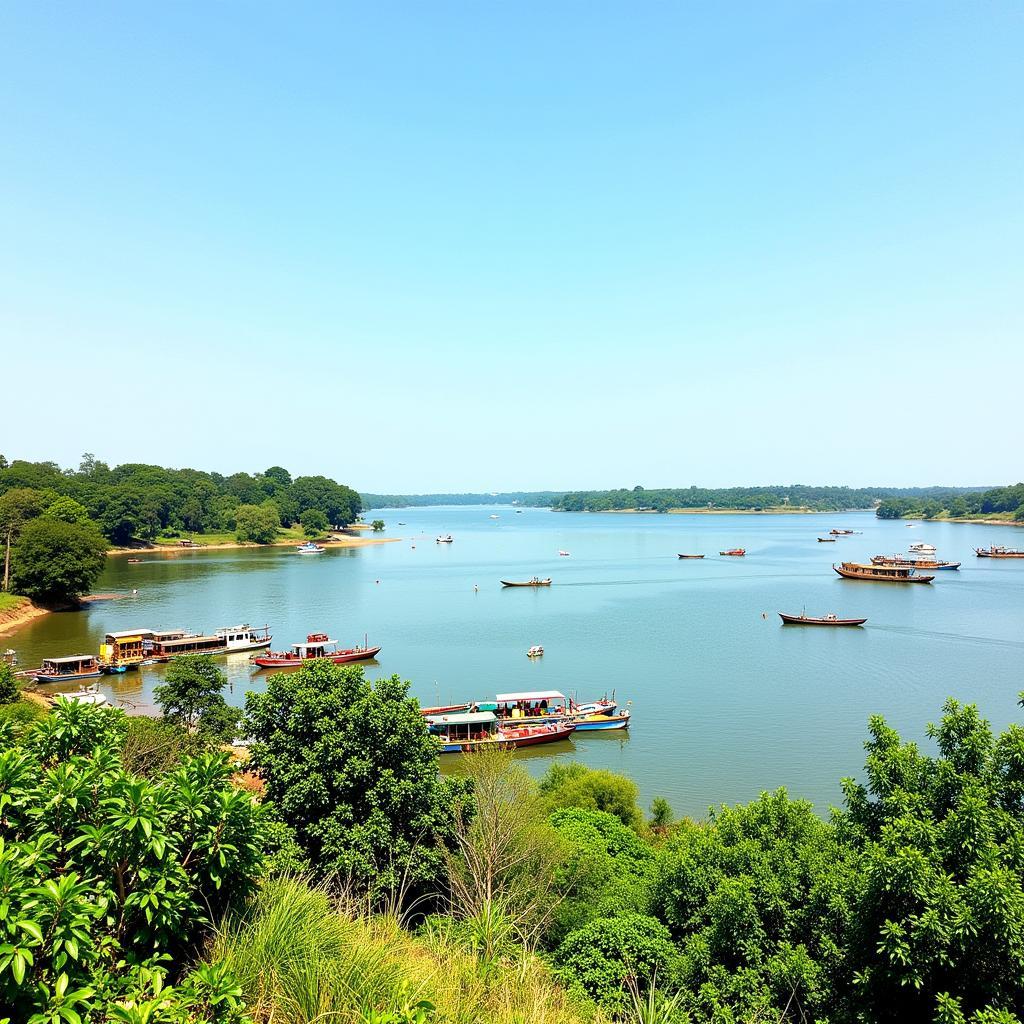Powering Africa: Exploring the Rise of African Clean Energy
Africa, a continent brimming with potential, is embracing clean energy as a catalyst for sustainable development. This shift towards renewable resources is not just an environmental imperative but a crucial step towards economic growth, improved healthcare, and enhanced quality of life for millions. The diverse landscape and abundant natural resources make Africa an ideal location for harnessing clean energy solutions. From solar power in the Sahara to geothermal energy in the Rift Valley, the continent is poised to become a global leader in the renewable energy sector.
The Untapped Potential of African Clean Energy
Africa’s clean energy potential remains largely untapped. While the continent boasts abundant sunshine, wind, and geothermal resources, the current energy landscape is dominated by fossil fuels. This presents a significant opportunity for growth and investment in the renewable energy sector. Transitioning to clean energy offers numerous benefits, including reduced carbon emissions, improved air quality, and decreased reliance on imported fossil fuels. The growth of the clean energy sector also creates jobs and stimulates economic development, contributing to poverty reduction and improved living standards.
After introducing clean energy’s potential, let’s delve deeper into specific technologies.
Solar Power: Harnessing the African Sun
With vast stretches of desert receiving intense sunlight, solar energy emerges as a natural solution for many African nations. Solar power is particularly attractive for remote communities lacking access to traditional power grids. Off-grid solar systems can provide electricity for homes, schools, and businesses, empowering communities and fostering economic growth. Initiatives like the African Development Bank 2017 Clean Energy Investment Framework www.afdb.org are key to fostering investment in solar and other clean energy projects. This framework highlights the bank’s commitment to supporting sustainable development across the continent.
The abundance of sunshine provides an ideal backdrop for exploring solar energy.
Wind Power: Catching the African Breeze
Coastal regions and elevated plateaus offer significant potential for wind energy generation. Large-scale wind farms are being developed in countries like Kenya, Ethiopia, and South Africa. These projects provide clean electricity to the national grid, reducing reliance on fossil fuels and contributing to a more sustainable energy mix. Wind power, alongside solar, is rapidly becoming a key component of Africa’s clean energy future.
Beyond these two major sources, there are other promising renewable options.
Geothermal Energy: Tapping into Earth’s Heat
The East African Rift Valley, a region of significant geothermal activity, presents a unique opportunity for harnessing clean energy from the earth’s heat. Countries like Kenya and Ethiopia are already utilizing geothermal resources for electricity generation, providing a stable and reliable source of power. Geothermal energy is not dependent on weather conditions, making it a valuable addition to the energy mix.
Overcoming Challenges and Embracing Opportunities
While the potential is vast, challenges remain. Financing clean energy projects, developing necessary infrastructure, and building local capacity are crucial for realizing Africa’s clean energy aspirations. International partnerships and private sector investment are playing a vital role in overcoming these hurdles. Furthermore, policy frameworks that encourage investment in renewable energy are essential for driving sustainable development.
“Investing in African Clean Energy is not just about mitigating climate change; it’s about unlocking economic potential and empowering communities,” says Dr. Anika Olumide, a leading expert in sustainable development in Africa. Her sentiment echoes the growing recognition of the transformative power of clean energy.
A Brighter Future Powered by Clean Energy
African clean energy offers a pathway towards a more sustainable and prosperous future. By embracing renewable resources, African nations can reduce their carbon footprint, improve access to electricity, and create new economic opportunities. The transition to clean energy is not merely a technological shift; it is a fundamental step towards building a healthier, more equitable, and resilient future for all Africans. “The transition to a clean energy future requires a collective effort, involving governments, businesses, and communities working together towards a common goal,” adds Mr. Kwame Asante, an energy policy analyst specializing in the African market. He emphasizes the need for collaboration and shared responsibility in driving the clean energy revolution.
Conclusion
African clean energy is a beacon of hope, illuminating the path towards sustainable development. By harnessing the continent’s abundant renewable resources, Africa can power its future while mitigating climate change and improving the lives of millions. The continued development and investment in this sector are essential for achieving a brighter future for generations to come.
FAQ
-
What are the main sources of clean energy in Africa?
Solar, wind, and geothermal are among the leading clean energy sources in Africa. -
Why is clean energy important for Africa?
Clean energy reduces reliance on fossil fuels, improves air quality, and creates economic opportunities. -
What are some of the challenges facing the development of clean energy in Africa?
Financing, infrastructure development, and capacity building are key challenges. -
How can I learn more about investing in African clean energy?
Research organizations like the African Development Bank offer resources and information on investment opportunities. (See the African Development Bank 2017 Clean Energy Investment Framework www.afdb.org) -
What is the role of communities in the transition to clean energy?
Local communities play a crucial role in adopting and supporting clean energy solutions.
For support, contact us: Phone: +255768904061, Email: kaka.mag@gmail.com or visit us at Mbarali DC Mawindi, Kangaga, Tanzania. We have a 24/7 customer support team.

